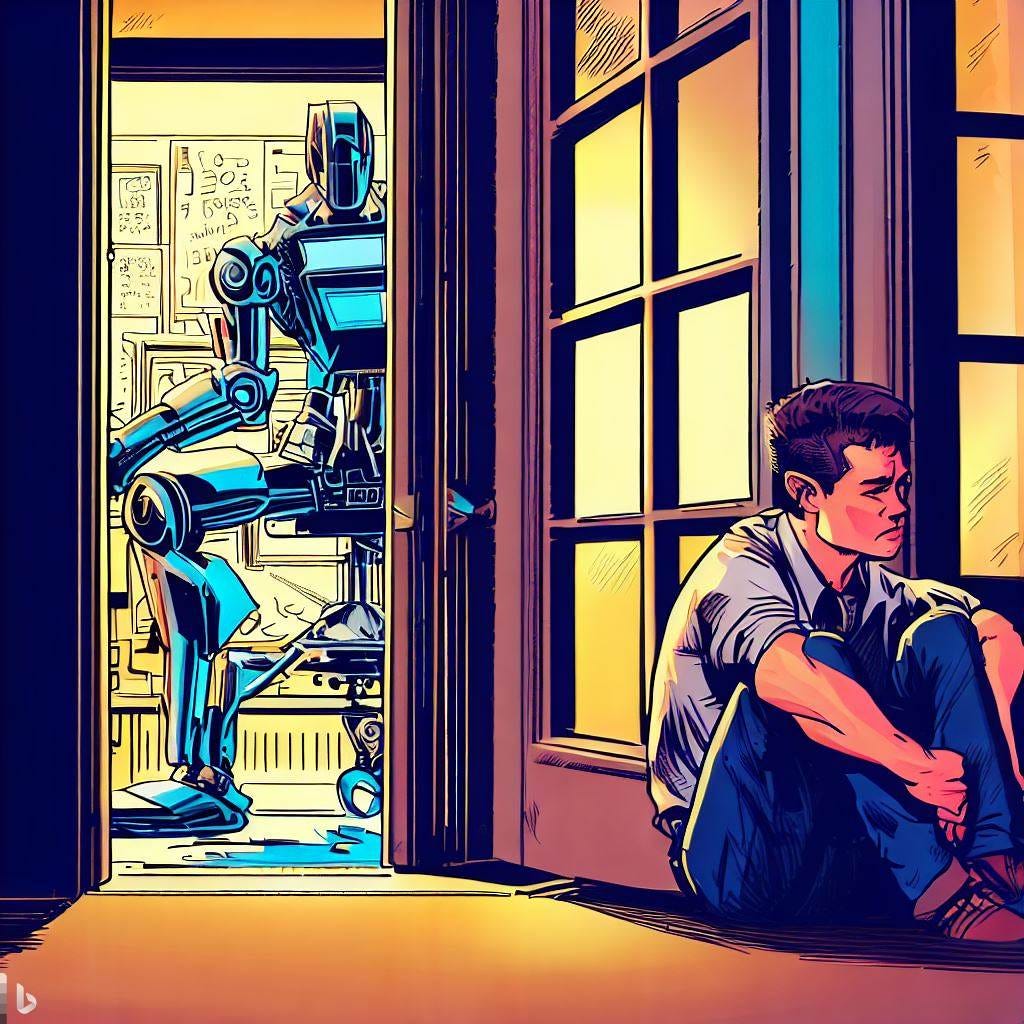If I were trying to get into graduate school right now, I'm not sure how I would feel about ChatGPT. On the one hand, it has awesome capabilities. For example, I strongly believe that it will expand educational opportunity. But on the other hand, I think it's going to make it even harder to get into graduate school.
What are the key factors that help students get into an economics PhD program? I detailed a lot of them in a previous video. One key factor is taking a lot of math. Once upon a time, this was how students differentiated themselves. They were like the early adopters of the iPhone, cruising around with special tech that no one else had. But not anymore. Just like how the iPhone is today's most common phone, so many students take the extra math that it's no longer special. In fact, it's a bigger deal if you do NOT take the right math classes.
So how do students differentiate themselves and why would ChatGPT ruin that?
The best way to stand out is to get research experience. Find a professor who is willing to let you work on some projects. This not only lets you get a feel for the research process (and the life you're dooming yourself to), it creates a stronger connection with your professor. When you apply to schools, your professor can boast about how helpful you have been to projects and how it shows you'll succeed at the next level.
After playing around with ChatGPT, I think the opportunities for undergraduate research assistants could dry up quickly.
Let me tell you how I got my first research assistant position. After I realized I wanted to get a PhD, I decided to knock on professors' doors and see if any would take me on. There was one who was known for hiring students, and even though I didn't know him, I knocked on his door. After he discovered my current job was working as a software developer, he immediately hired me because he needed someone who could code.
I was like the swordsman with a steel sword in Medieval Times: I had a valuable skill that was relatively rare among economics students. But ChatGPT is like the Bessemer process, which made steel widely available for cheap. If ChatGPT has shown us anything, it's that it is a proficient coder. Just this week, I needed some programs written to help with research. I asked ChatGPT to write them from scratch, and each one worked the first time. Why does a professor need a student to code for them when ChatGPT can do it much faster and better?
But the other way I used ChatGPT this week scares me even more.
For 9 years now, I have had a rich data set that I have not been able to analyze. I collected descriptions of new businesses in Haiti out of an interest in how political shocks affect the economy. But the problem was that I had thousands of descriptions that were not standardized. Some businesses have two founders, others have five. Some list the capital at the end of the description, others sprinkle it throughout. There was no away to automate the data collection. My only hope was to hire someone to read through and code everything for me.
Normally, this is the perfect kind of job for an unexperienced undergraduate RA. Even if you have no programming skills or no training in economics, it's pretty easy to follow the instructions: "Read this paragraph and enter the data into the spreadsheet." But I had one more problem: all of the notifications were in French. That means I had to find an undergraduate who was not only interested in going to graduate school, but also capable of reading French. For 9 years, I haven't found the right student for the job. Until this week.
I decided to see what ChatGPT would do with it. Just like I would do with an RA, I wrote instructions on what I needed recorded from the announcement. My expectations were approximately the same as if I had picked up a stick from the side of the road and yelled Wingardium Leviosa. Obviously nothing was going to happen. That is, until something started to levitate.
ChatGPT returned a table with all of the variables I asked for, perfectly extracted. Then I wrote a quick program to loop over the nearly 6,000 files I had. A task that could easily take months for an undergraduate was completed in one night.
And that's why I worry about undergraduates today. Clearly not all of their work will be replaced. But some major tasks could disappear as ChatGPT gobbles them up.
In economics jargon, the costs of computer "labor" have significantly dropped relative to the costs of RA labor. Ergo, there is a substitution effect pushing towards more computers. But, with every substitution effect, there is also a scale effect.
A scale effect is when the price of one item goes down, that gives you more resources to scale your business. And, obviously, business here is research. Just like more computing power led to more applied econometrics work, we'll see more projects unlike any we have seen before. Those projects need economists.
What I'm finding so cool is that ChatGPT is democratizing natural language processing. One of the most abundant sources of data available throughout history is text. Like I described above, the hard part has been converting that text into data. Now all you have to do is feed ChatGPT instructions on what you want and it can parse the data for you.
So what would I be working on as a young scholar right now? I'd be thinking about what sources of data exist that could answer interesting questions.
Do wedding announcements in the newspaper tell us something about the economics of marriage markets? Write a program that will extract information about the couple.
How do CEOs handle uncertainty? Feed the quarterly calls into ChatGPT and do a sentiment analysis.
How do developing countries punish crime? Find notices of criminal sentences in the local newspaper and have ChatGPT extract the crime and punishment.
The cool thing about this is that you probably know about a unique dataset. Some collection of journals or news articles that have valuable insights in them that no one else knows about. That's like my Haitian business announcements. It's not like they were a secret, but I knew they existed and I knew they had interesting data in them.
The question is: what data set can you create now that you have ChatGPT at your fingertips?




Great piece Craig. You've given me an idea...